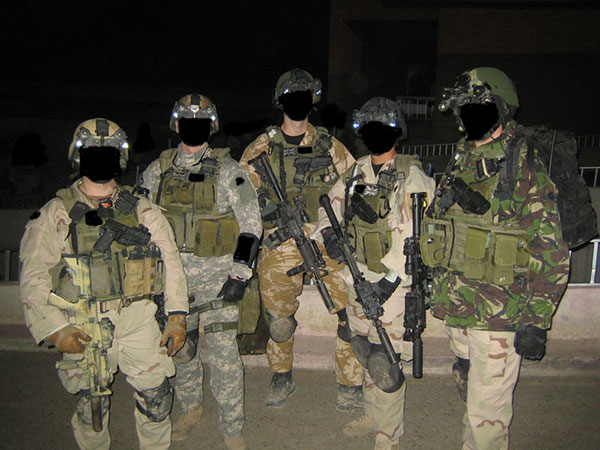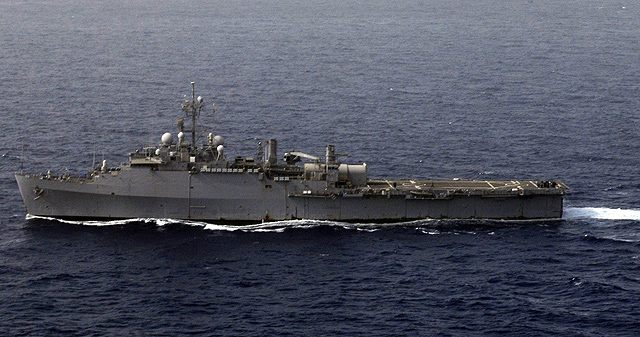.- The Spanish commander René Pita, professor of Chemical Defense at the Military Academy of Defense Nuclear, Biological and Chemical Hoyo de Manzanares (Madrid), said today that Libya stores still about ten tons of mustard gas, but lacks the means to use them. Pita was speaking to Reuters in Valencia (eastern Spain), before working on the course on nuclear risks, biological and chemical organized by the Catholic University of Valencia.
"In 2003 Libya renounced its program of weapons of mass destruction and acceded to the Convention for the Prohibition of Chemical Weapons, which involves the destruction of stockpiles," he said. "He said approximately 30 000 special aerial bombs to disperse chemical warfare agents and nearly 30 tons of mustard gas.
Pumps must have a special ammunition, because the conventional thermal effect that inactivates the mustard gas (mustard gas) "he added. According to the commander Pita, before initiation of the current armed conflict in Libya already destroyed all the bombs, but "there are approximately ten tons of mustard gas in a location that is known and controlled by the international community in the desert and far from any population.
" "This amount is not very high, and without the proper ammunition is unlikely, almost impossible, that you can use this agent, although it is a liquid and manipulate only the fact it is risky," he said. Currently, "it is known that the United States and Russia have chemical weapons, Iraq has agreed to the destruction program recently and have already destroyed their stockpiles countries like Albania, North Korea and India.
No European country has declared possession of chemical weapons" Pita said. In his speech, the commander debunked the idea that "anyone can produce a biological agent," because "if it were that easy," he stressed, "because we had heard." "It's much easier to exploit the explosive properties of chemicals the toxicological, so the main threat is explosives," he said.
He explained that the Spanish Government is currently considering a law to protect installations "critical" that store certain chemicals and biological agents that are listed in a national catalog classified. "A chemical warfare agent is difficult to synthesize, but poorly exploited certain industrial chemicals could be dangerous.
The chemical or biological hazards are not a threat or civil or military level, but the fact that international terrorism has shown interest in accessing this type of weapon, and we must be prepared, "he added. 


"In 2003 Libya renounced its program of weapons of mass destruction and acceded to the Convention for the Prohibition of Chemical Weapons, which involves the destruction of stockpiles," he said. "He said approximately 30 000 special aerial bombs to disperse chemical warfare agents and nearly 30 tons of mustard gas.
Pumps must have a special ammunition, because the conventional thermal effect that inactivates the mustard gas (mustard gas) "he added. According to the commander Pita, before initiation of the current armed conflict in Libya already destroyed all the bombs, but "there are approximately ten tons of mustard gas in a location that is known and controlled by the international community in the desert and far from any population.
" "This amount is not very high, and without the proper ammunition is unlikely, almost impossible, that you can use this agent, although it is a liquid and manipulate only the fact it is risky," he said. Currently, "it is known that the United States and Russia have chemical weapons, Iraq has agreed to the destruction program recently and have already destroyed their stockpiles countries like Albania, North Korea and India.
No European country has declared possession of chemical weapons" Pita said. In his speech, the commander debunked the idea that "anyone can produce a biological agent," because "if it were that easy," he stressed, "because we had heard." "It's much easier to exploit the explosive properties of chemicals the toxicological, so the main threat is explosives," he said.
He explained that the Spanish Government is currently considering a law to protect installations "critical" that store certain chemicals and biological agents that are listed in a national catalog classified. "A chemical warfare agent is difficult to synthesize, but poorly exploited certain industrial chemicals could be dangerous.
The chemical or biological hazards are not a threat or civil or military level, but the fact that international terrorism has shown interest in accessing this type of weapon, and we must be prepared, "he added.



No comments:
Post a Comment